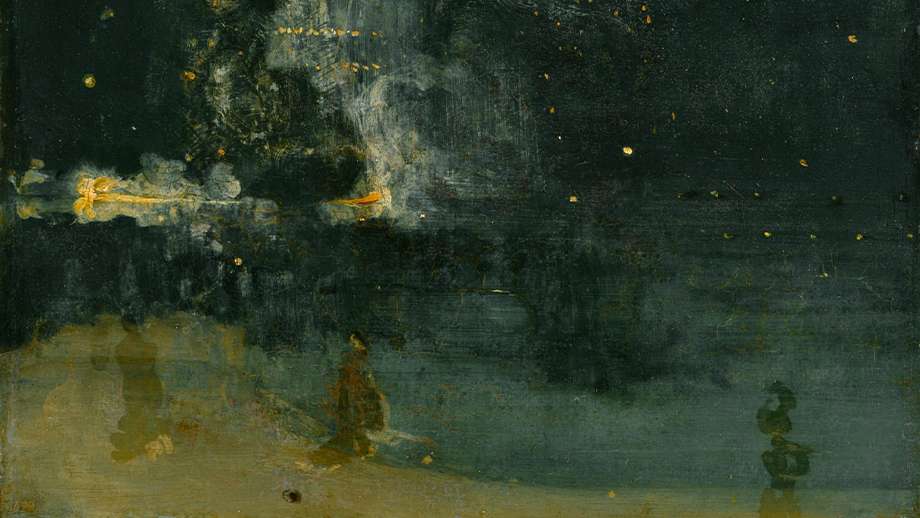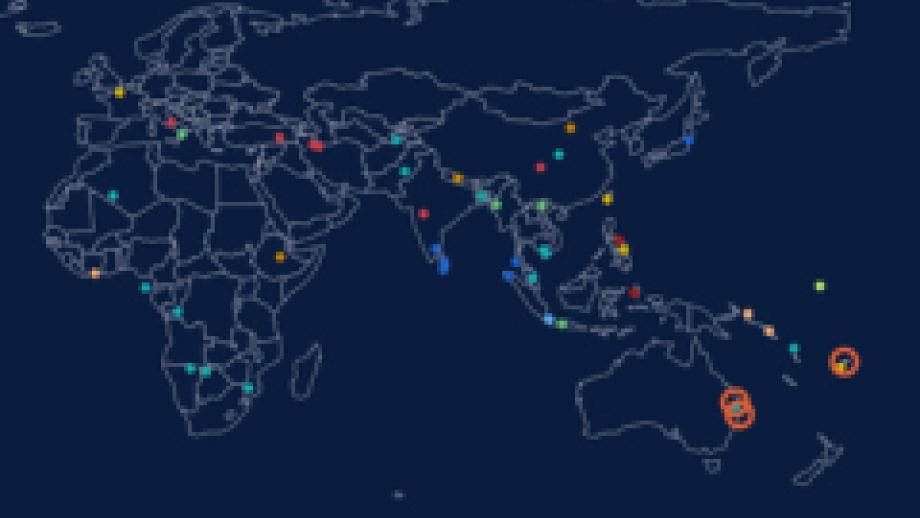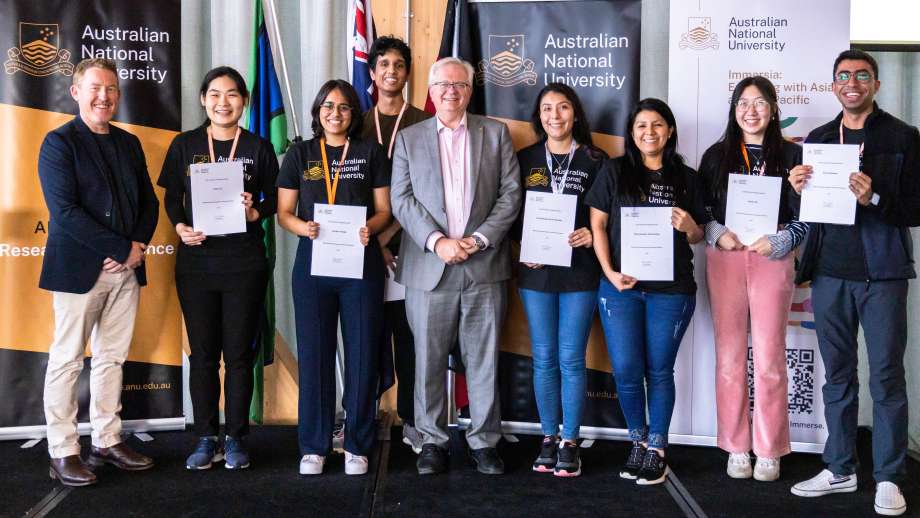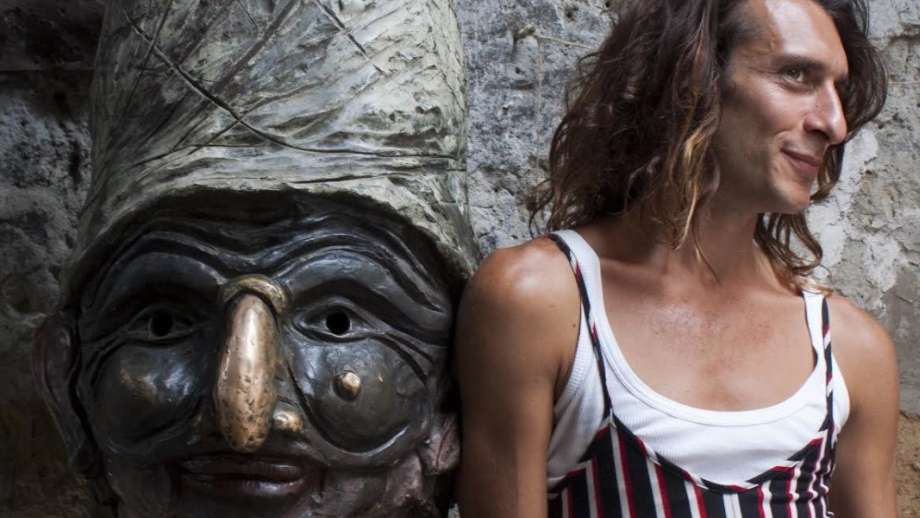Where Lakes Once Had Water: Sonia Leber and David Chesworth
Photo: Sonia Leber and David Chesworth, Where Lakes Once Had Water (video still), 2020. 2-channel 4K UHD video, stereo audio, 28:14 minutes. University of Wollongong Art Collection. CABAH Art Series Commission in partnership with Bundanon. Filmed on the lands of the Mudburra, Marlinja, Jingili, Elliot, Jawoyn and Larrakia communities in Northern Territory, Australia.
In 2018 and 2019 artists Sonia Leber and David Chesworth travelled with a team of Earth and environmental scientists investigating changes in the climate, landscape and ecology over many millennia in the Northern Territory. Leber and Chesworth's Where Lakes Once Had Water (2020) channels this experience, in which Indigenous rangers, Elders and community members collaborate with scientists in spectacular yet challenging environments.
Filmed on the lands of the Mudburra, Marlinja, Jingili, Elliot, Jawoyn and Larrakia communities and presented across two screens, this immersive long-form video is a journey encompassing audio-visual realms, scientific endeavour and traditional Indigenous knowledge, stories and custodianship - a coalescence of efforts to understand the ancient land.
Where Lakes Once Had Water is the inaugural art commission of the Australian Research Council Centre of Excellence for Australian Biodiversity and Heritage (CABAH) in association with Bundanon. Dedicated to researching and preserving Australia's cultural heritage and natural environment, CABAH works across disciplinary boundaries, and seeks to garner broad perspectives of the past in order to engage new audiences with the story of 'epic Australia'.
Sonia Leber & David Chesworth: Where Lakes Once Had Water was commissioned by the Education and Engagement program of the Australian Research Council Centre of Excellence for Australian Biodiversity and Heritage (CABAH) in partnership with Bundanon. Where Lakes Once Had Water is the first of four art commissions in a series initiated in 2018 that aims to engage artists with aspects of CABAH's research to make new work that responds to, questions, and interprets the research for broader audiences.
Location
Contact
- Drill Hall Gallery+61 2 6125 5832



